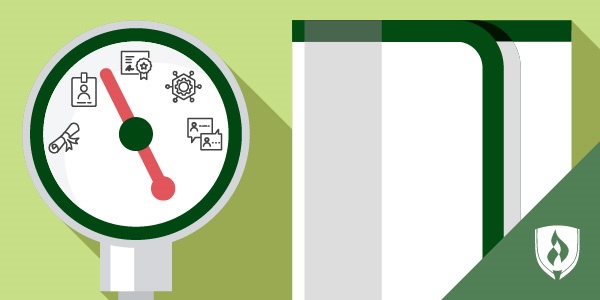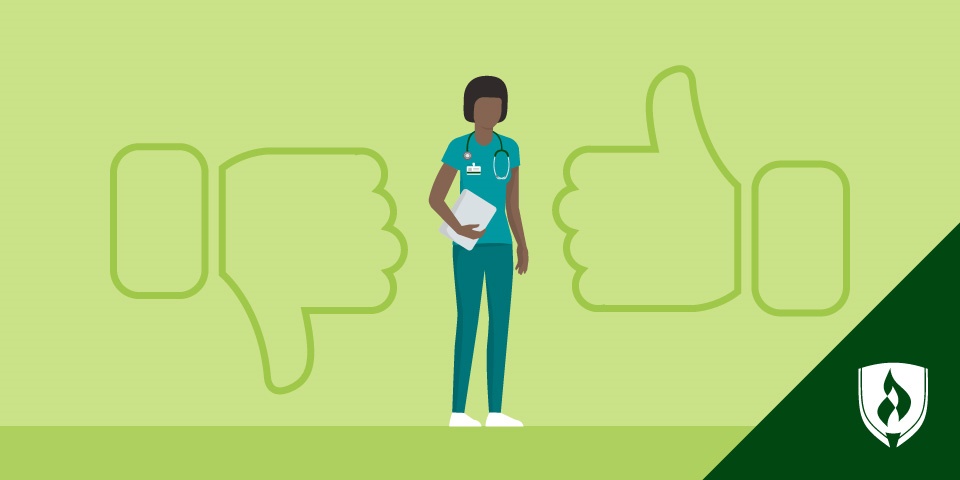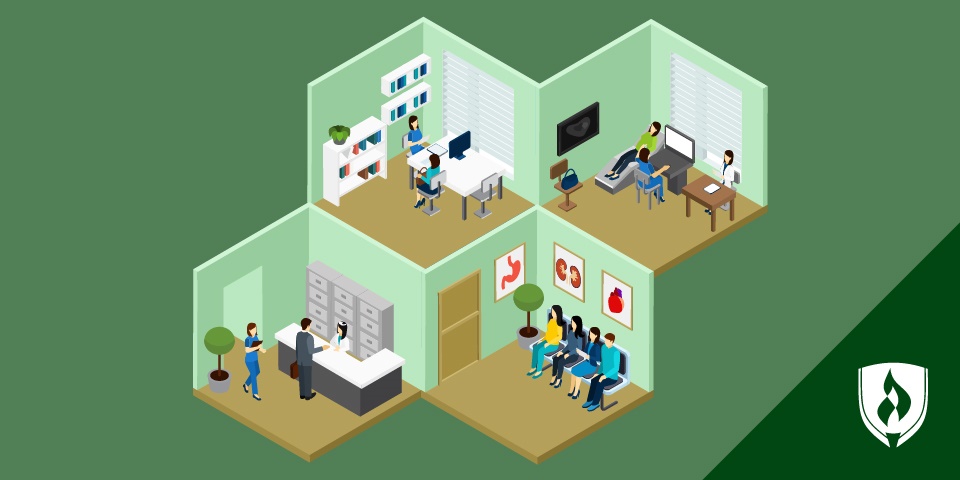6 Reasons Moms Already Have the Core Characteristics of a Medical Assistant
By Kirsten Slyter on 08/12/2019

You’ve occasionally daydreamed about getting a job in healthcare, but you usually find yourself walking away from the idea. You’re an excellent mom, but you don’t know much about the medical field. You keep telling yourself to put your healthcare career dreams on the back burner and stick with what you’re good at. After all, you’re practically a certified pro in wiping runny noses, cutting up banana slices and keeping a lookout for sharp edges or dangerous objects before your baby can get to them.
But did you know that your time as a mother may have already prepared you with the core characteristics of a medical assistant? While you thought all those months of stuffing diapers in a dispenser were just part of the work of motherhood, your experiences as a mom have been preparing you to pursue a career helping others as a medical assistant (MA).
6 Medical assistant characteristics moms already possess
Being an MA is about more than just medical assistant duties that can be taught—like drawing blood or taking vital signs. Medical assistants also need to have the right combination of people skills if they really want to succeed in their career. We’ve compiled a list of medical assistant qualities you probably already have as a mama! Read on and prepare to turn those healthcare dreams into reality.
1. Problem sensitivity
Why this skill matters for medical assistants: The ability to tell that something is wrong—or that something is likely to go wrong—is a key skill for medical assistants. While medical assistants aren’t solely in charge of solving the problem, they’re on the front lines of noticing abnormalities or patient discomfort. A medical assistant is often the first person in contact with a patient, which allows them a unique role in noticing what’s up.
How parenting helps: You have a fine-tuned radar that helps keep your kiddos out of trouble. Even when they’re running around, pretending to be superheroes, you easily notice that your son’s race-car collection is still lying out. So you call a pause on the running and have your kiddos clean up a potentially hazardous mess. You’re no stranger to being alert and aware of potential issues—health or otherwise!
2. Empathy
Why this skill matters for medical assistants: Health problems can be scary, and a little empathy from healthcare workers goes a long way in making a patient feel cared for. It also helps you, the medical assistant, to be gentler and more kindhearted as you administer an injection, draw blood or complete other potentially painful procedures. It’s invaluable for patients to know that someone hears them and understands. Your empathy can make a world of difference to them.
How parenting helps: Bad dreams, stubbed toes, spilled milk—if there’s ever been a child-size problem, you’ve listened to it and talked through it. Empathy develops naturally for mothers because they are constantly working through the everyday problems that crop up as little ones grow. As a mom, your listening skills are probably stellar by this point in the game—why not apply that to a career as a medical assistant.
3. Multitasking
Why this skill matters for medical assistants: Medical assistants wear many hats. They administer injections, draw blood, order supplies and equipment, take vital signs, prepare exam rooms for patients, record patient medical history, schedule appointments and much more. The skill of multitasking helps MAs complete all their duties without breaking a sweat.
How parenting helps: As a mom, you’re no stranger to a little chaos even when the doorbell and phone are simultaneously ringing and your toddler just chucked a handful of macaroni and cheese at the wall. This may sound crazy to those without kids, but to you, it’s a typical Thursday afternoon. You’re a pro at managing several tasks at once and correctly prioritizing the most pressing—a skill that translates directly to a career as a medical assistant.
4. Communication skills
Why this skill matters for medical assistants: With all the interaction MAs have with patients, nurses and doctors, it’s important to be a good communicator and relay all the necessary details. Letting patients know what’s about to happen, notifying a doctor or nurse if you notice something strange and providing great customer service as you schedule appointments goes a long way in making you a great medical assistant.
How parenting helps: You rely on clear communication as a mom, from reminding your son what time to be home for curfew to telling your daughter exactly what she’s allowed to watch on TV. But your communication skills don’t end there. It’s also that deep conversation before bed and the chatter in the car during your family vacation. Your ability to clearly give instructions while sincerely listening to and caring for your kids will serve you well as a medical assistant.
5. Organization and keeping track of details
Why this skill matters for medical assistants: Between scheduling appointments, keeping track of patients’ medical histories, recording vitals and communicating important information to your superiors, there’s plenty for medical assistants to organize and keep track of. If you’ve got a handle on keeping track of details and are thorough and organized, you’re already prepared to succeed as a medical assistant.
How parenting helps: Everyone’s got a dentist appointment scheduled this week, your daughter almost forgot her backpack on the way out the door and you have to write out instructions for the evening babysitter. Staying organized is a must for a mom keeping track of her busy family’s schedule, and there’s no doubt that this ability will also come in handy in a career as a medical assistant.
6. Self-control
Why this skill matters for medical assistants: Depending on whether you end up working at a clinic or a hospital, you’ll face hardships that may trigger intense emotions. Whether you’re facing a patient’s undesirable test results, or dealing with a patient’s death, it’s easy to feel discouraged or frustrated, if a patient or family member blames you for their problems.
Dealing with death and bad news on a regular basis, a medical office can be an emotional place. Though these emotions are 100 percent normal, it’s important as a medical assistant to remain professional and composed even in the toughest of situations.
How parenting helps: As a parent, you know how to handle off-the-wall emotions. As a parent, you’re able to walk your little ones through complex, emotionally driven situations like dealing with bullies at school or the death of the family pet. Your emotional intelligence will enable you to come alongside your patients in their health journeys, no matter how challenging.
You might be a good match
You already have many characteristics of an outstanding medical assistant, why not find out more about the career you’ve been dreaming about? Being a mom has already equipped you in a multitude of ways, so why not leverage your practical parental skills in the growing medical field?
Need more reasons to take the first step to becoming a medical assistant? Check out our article “12 Benefits of Becoming a Medical Assistant.”
EDITOR'S NOTE: This article was originally published in 2017. It has since been updated to include information relative to 2019.




